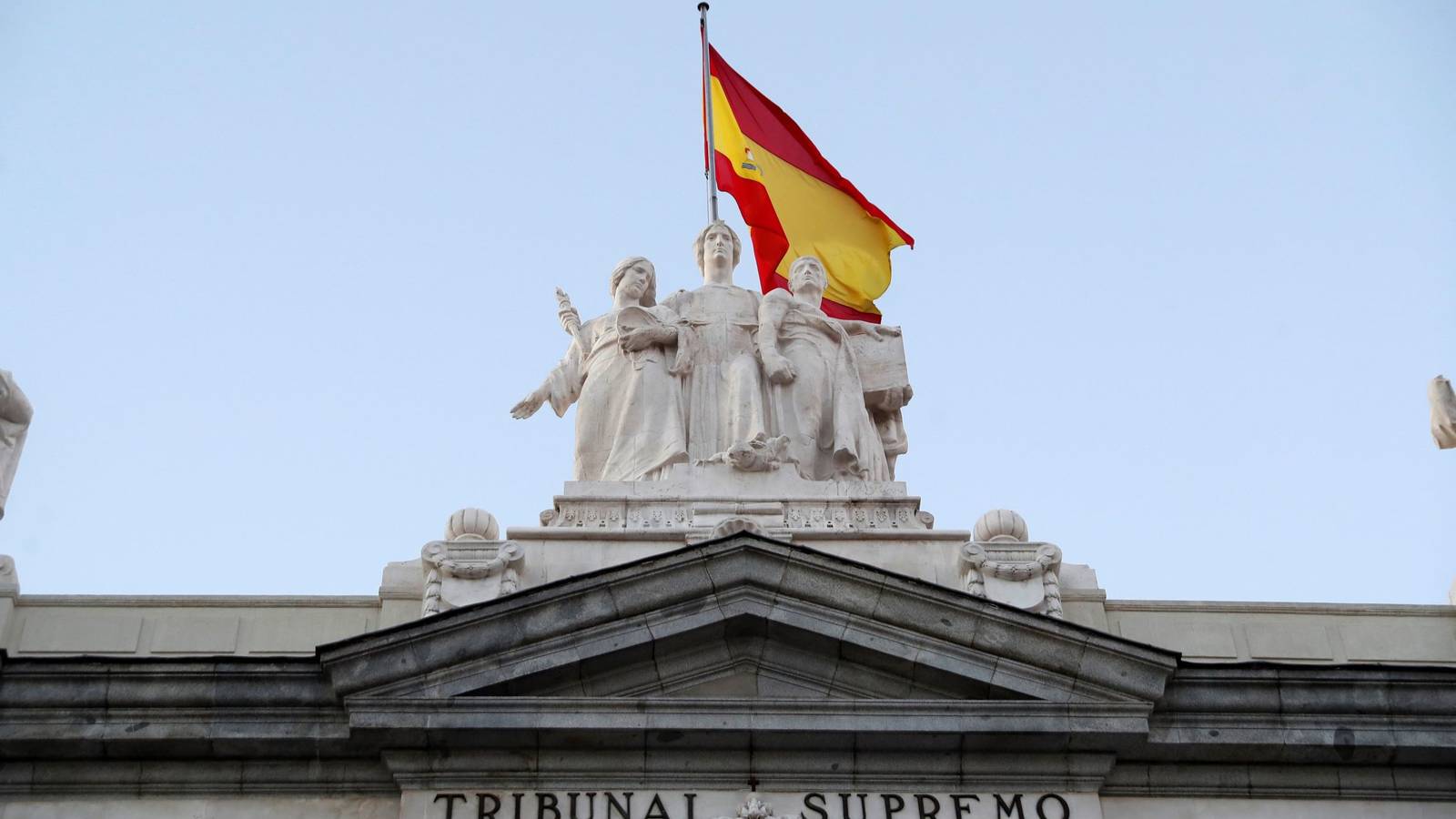Last week, on 24 May 2021, the Spanish Supreme Court (Tribunal Supremo) issued a judgment (in Cassation Appeal Number 3375/2021) clarifying for the first time the critical issue of whether and how Spanish public health legislation, which pre-dated Covid-19, can be used for the adoption of preventive measures restricting fundamental rights in the context of the ongoing pandemic.
More precisely, this judgment sheds light on two closely interrelated issues which have been the subject of sharp political, judicial, and academic discussion throughout the pandemic (as explained in this previous post by Prof Alba Nogueira and in the Oxford Compendium Country Report for Spain):
- Firstly, whether, in the absence of a state of alarm declared by the Government, public health legislation (ie Organic Law 3/1986 on Special Measures in Public Health Matters, the General Healthcare Law 14/1986, and the General Public Health Law 33/2011) is a proper and sufficient legal basis for the adoption of restrictive health measures by the administrative authorities of both the State and the Autonomous Communities (ACs), each of them within their respective fields of substantive competences.
- Secondly, what is the scope and meaning of the judicial ex ante authorisation needed for the enforcement of any such administrative measure, according to Law 29/1998 on the functioning of contentious-administrative courts. As explained in the Oxford Compendium Country Report for Spain ([15] and [16]), the role of the judiciary when it comes to administrative health measures is not only to scrutinize them after their adoption, but also to pre-authorize them in case they consist of binding provisions and include restrictions of fundamental rights. From September 2020, this regime of judicial pre-authorization is applicable to any extraordinary measure adopted on the basis of the health legislation described above, ie not only to single-case decisions with individual addressees (as was traditional under Spanish law) but also to general measures.
This ruling is the first one issued in the context of the new modality of the cassation appeal introduced by Royal Decree-Law 8/2021 of 4 May 2021. The amendment introduced by this Royal Decree-Law, which pursues the goal to avoid contradictory judicial decisions, consists of centralizing in the Supreme Court those cases concerning the ex ante judicial control of restrictive health measures addressed to large groups of people and adopted on the basis of health legislation.
Public health legislation and fundamental rights
On the one hand, the Supreme Court’s ruling addressed the issue of whether public health legislation, in spite of dating back from several years before the pandemic, offers a sufficient legal basis for adopting preventive measures restricting fundamental rights. In this respect, three provisions were jointly examined:
- Article 3 of Organic Law 3/1986, according to which ‘[in] circumstances of urgency or need for the protection of public health […] health authorities may take, in addition to general preventive actions, appropriate measures for the control of sick persons, persons who are or have been in contact with them and the immediate environment, as well as those considered necessary in cases of risk of a communicable nature’.
- Article 26 of Law 14/1986, which sets out that ‘[in] the event of the existence or reasonable suspicion of the existence of an imminent and extraordinary risk to health, the health authorities shall adopt the preventive measures they deem appropriate, such as the seizure or immobilisation of products, suspension of the exercise of activities, closures of companies or their installations, intervention of material and personal resources and any others considered to be justified in terms of health. The duration of these measures, which shall be established for each case, without prejudice to successive extensions agreed by reasoned resolutions, shall not exceed the duration required by the situation of imminent and extraordinary risk that justified them’.
- Article 54 of Law 33/2011, which establishes that ‘exceptionally, when so required for reasons of extraordinary gravity or urgency, the State and the ACs, within the scope of their respective competences, may adopt such measures as may be necessary to ensure compliance with this law, including […] any other measure in accordance with current legislation if there are reasonable indications of risk to health, including the suspension of activities in accordance with the provisions of Title II of this law. The measures shall be adopted after hearing the interested parties, except in cases of imminent and extraordinary risk to the health of the population, and their duration shall not exceed the time required by the risk situation that gave rise to them. The costs arising from the adoption of precautionary measures referred to in this Article shall be borne by the person or undertaking responsible. The measures taken shall, in any event, respect the principle of proportionality’.
Although the Supreme Court recognized that these provisions are somewhat vague (because they include open-worded clauses allowing for the adoption of ‘any other similar measures’), it concluded that they enjoy a sufficient degree of precision as regards the situations in which restrictive measures can be adopted and as regards their scope, so that ‘it cannot be maintained that these provisions are so imprecise that they allow the administration to do anything’.
More specifically, the Supreme Court stressed that the adoption of restrictive measures (such as tailored limitations of the freedom of movement, which is the only kind of measure specifically concerned in this judgment) is subject to four cumulative requirements, namely that: (i) there is a serious transmissible disease that endangers the health and life of persons; (ii) the restrictive measure is essential to prevent transmission because there are no other effective means to achieve this goal; (iii) the personal and territorial scope of the restriction is determined on the basis of the number of sick persons and their location; and (iv) the restrictive measure has a clear temporal scope, fixed in view of what is necessary to prevent the spread of the disease.
The judgment therefore concluded that, provided that these conditions are met, the State and the ACs can use public health legislation to fight the Covid-19 pandemic through preventive measures such as had hoc restrictions of movement among different territories, even if these restrict the fundamental rights of their addressees.
The role of courts
As for the special mechanism for prior judicial authorisation of health measures restricting fundamental rights, the Supreme Court’s ruling recalled that the ex ante ratification or authorisation does not amount to ‘a mere validation or confirmation of an administrative measure which already meets all the conditions legally required to be effective’, but rather to ‘a necessary requisite for the effectiveness of any such measure’, which therefore cannot become effective before it has been ratified by the courts.
Beyond this, however, the most interesting part of the ruling is the one clarifying the scope of the powers attributed to contentious-administrative courts in the context of this ex ante control mechanism.
In this regard, the Supreme Court started by stressing the particular features of this procedural mechanism. These include inter alia the fact that it can only be initiated by the administrative body seeking ratification of the projected measures, the lack of adversarial nature of the procedure (in which only the administration and the Public Prosecutor’s Office can intervene), and its fast-tracked processing (in a maximum of three calendar days).
This allowed the Supreme Court to conclude that the scope of the judicial assessment within these procedures is extremely limited. Contentious-administrative courts must restrict themselves to verify whether the restrictive measures at hand (i) have a legal basis, (ii) stem from a competent administrative body, (iii) are based on a clear and proven serious risk to public health resulting from a transmissible disease, (iv) have a sufficiently determined personal, territorial, and temporal scope, and (v) are prima facie appropriated, necessary, and proportionate to the goal that they pursue.
From this follows that in-depth examination of preventive measures is excluded in these ex ante control procedures (because they allow for neither contradiction nor full probation means) and that it is deferred to the ordinary (ex post) mechanisms for judicial review of administrative action. This was expressly highlighted by the Supreme Court, which stressed that ex ante judicial authorisation of health measures does not necessarily confirm their legal validity and, consequently, that it does not prejudice the ex post control of legality to be carried out by contentious-administrative courts through the ordinary mechanisms of judicial review, if activated by the persons affected by the restrictive measures at hand.
TWEET
